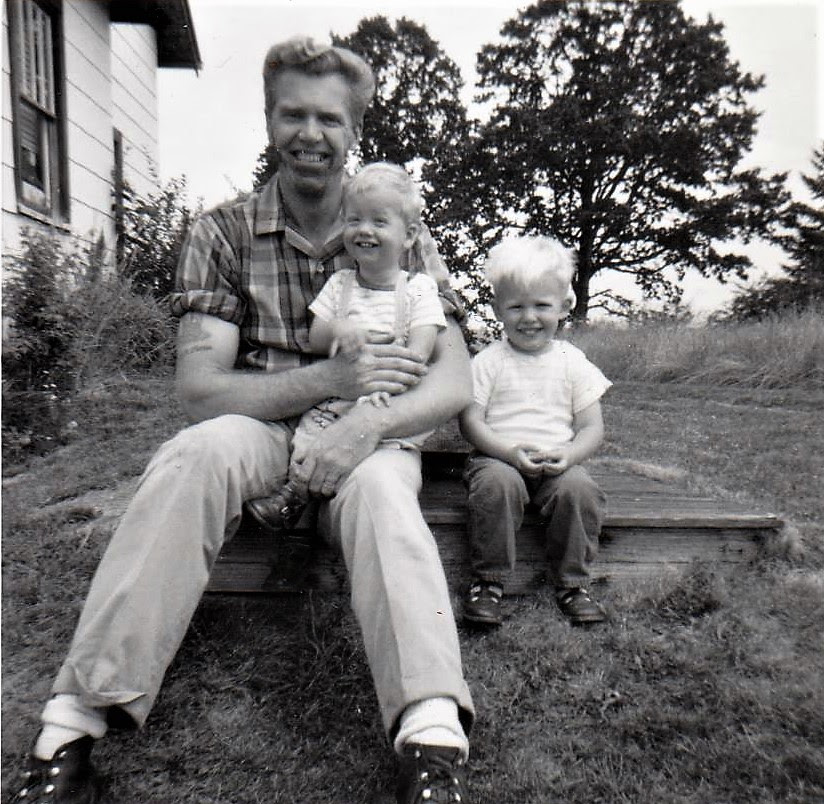A regal Orchid, sent by church friends, arrived for my Dad’s memorial service in January 2021 and then somehow wound up in my “care.” If you can call it that. The fact that it didn’t immediately die on my watch has me quite honestly in awe of this creature. I can keep only one type of plant alive—the kind that thrive on abuse and neglect.
Orchid was in bloom when she first arrived, her dainty blossoms crisp and magnificent in contrasting pale pink and veins of bold magenta. It sat by a window my office at the church for a while, then I brought it home with little hope it would survive. It was such an exotic thing for a clod like me. The blooms were so fragile, yet strong. My granddaughter said she learned that orchids live in tropical rainforests and often grow on trees, sort of like a parasite. That is simultaneously weird and cool. I’ve watched how it grows, its aerial roots groping like bony, green fingers. Orchids are difficult to start, but once they germinate and become established, they’re like a beautiful free-loader too lovely to disturb.
A few months after bringing Orchy home, I was horrified to find the blossoms wilting, then they all dropped like dainty little paratroopers. Noooo!!! Surely I’d cursed the exotic flower by bringing it home to my ordinariness. But the leaves remained sleek and sturdy, so at least I knew I hadn’t thoroughly killed it. I let the spent thing be, hoping she would live out the rest of her days as a plain spinster, like poor little Anne Elliot, whom Austen wrote had “lost her bloom.” (At the ripe old age of 27…)
But to my surprise, after being left in a corner to knit and play solitaire, Orchy suddenly sprouted little buds and then exploded in magnificent color once again. Exotic was apparently undaunted by ordinary!
Sadly, the second bloom didn’t last long. The blossoms quickly fell and my exotic little friend went dormant again. And this time, she stayed that way. I eventually moved the old girl to another room where she could wait out her days near a north-facing window, where a little more light could warm her old bones, where she could watch the joggers and dog-walkers pass by.
Months have passed. She sits between the piles of books I’m studying, in spindly silence, her rubbery leaves still spry, valiant, but past her bloom, barren.

Or so I thought.
Today, I turned her pot see if she might like a little sun on her backside . . . and spotted a new bud sprouting on the stalk. Then I looked closer at both stalks and saw a few more tiny nubs.

Yay!
And I’m not sure what to make of this. That I accept disappointment prematurely, perhaps? That I write off hope too soon? That humans are quick to dismiss/shelve/cancel anything (or anyone) that doesn’t give immediate gratification? That just when we think our season of being fruitful has come to an end, a new season begins, or that miraculous things are happening though we don’t see them, before anything is apparent to the naked human eye?
Now faith is confidence in what we hope for and assurance about what we do not see.
Hebrews 11:1
It reminds me of how often we forget that God hears our prayers because we don’t see anything happening. We forget that not everything He’s doing is visible, and just because we don’t see what we want, it doesn’t mean He’s not at work.
It reminds me that that dormancy is not death, and that a breathtaking eternity is just around the corner.
And that sometimes, El Shaddai delights in showing you that your ordinary is actually extraordinary. Exotic, in fact.


















